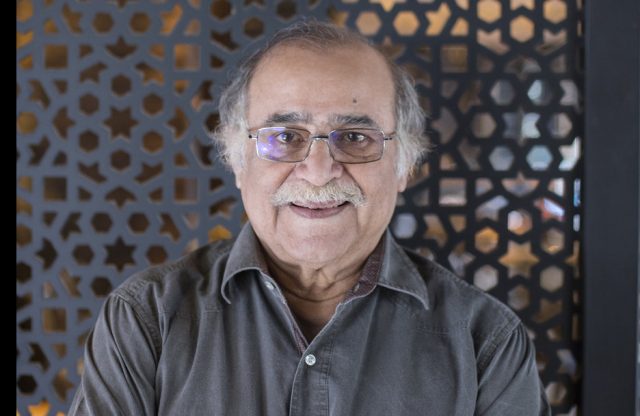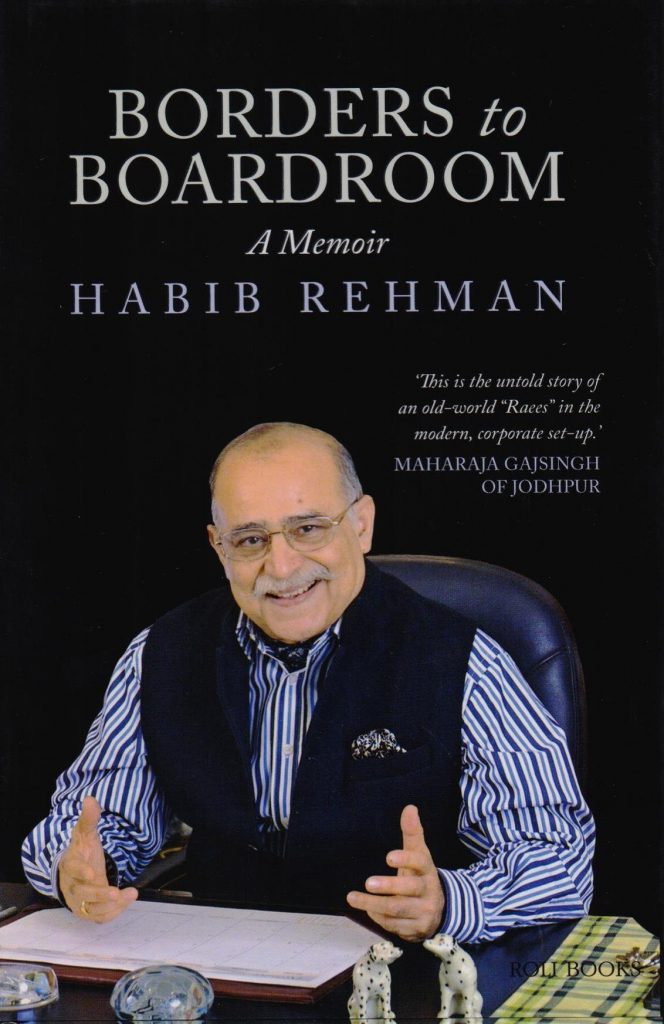Hospitality titan Habib Rehman opens up about his illustrious career.
By Ashima Sethi
Those who work in the hospitality industry might have heard of Habib Rehman, a man whose illustrious career spanning three decades with ITC Hotels Limited can only be described as extraordinary. After leaving the Indian Army and joining the hotel business in 1975, Habib climbed the ranks to success as Managing Director of ITC Hotels Limited in 1994, prior to assuming his commendable position as Executive Director on the board of ITC in 1997. In this capacity, he spent 12 years expanding the company’s food, travel and tourism sectors, thus cementing ITC as one of India’s top hospitality chains.
Many of us, without realising, have benefitted from his influence, particularly in the way we visit India, from the modern rooms and amenities we enjoy to the way we savour Indian cuisines at luxurious properties. Now as a Non-Executive Independent Director on the board of ITC, he shares with Masala a glimpse into his legacy, and why Thailand is in an advantageous position to continue growing as a culinary capital.
When I arrived to meet the legendary hotelier, he was warm in his demeanour, beckoning me to have a seat at his breakfast table before introducing himself and his book, Borders to Boardroom: A Memoir, which describes his gripping journey
from army cadet to hotel pioneer. “It was always my dream to join the air force,” Habib shares. “However, when I applied to become a pilot, I failed my eyesight test because I am partially colour blind. 50 years ago, it was all visual flying and perfect sight was imperative, so I decided to join the army instead.”
After a series of high-altitude postings, health concerns forced Habib to retire from the Indian Army in 1975. With no backup plan, it was an accidental meeting with Pishori Lal (PL) Lamba, the owner of Gaylord, which led to his first job in hospitality as the manager of an ice cream factory. When the business fell through, it was another chance encounter, this time with Chairman of ITC, Ajit Haksar, which drove Habib into the next stage of his career, working for the luxury chain.
At the time, ITC was perceived as a brand with lots of money but no character due to its lack of unique selling points. So when a company upheaval occurred and a new team was introduced, Habib finally had the opportunity to make his mark. “I knew it came down to three things — business strategy, marketing and common sense,” he says. “We had to create a hotel that people could emotionally associate with. Guests should always be able to find comfort, and a hotel’s accommodation, service and food and beverage (F&B) outlets must communicate this belief.”
“At the time, I noticed that five-star hotels were predominantly serving cuisines like Italian and French, but the quality of Indian food was abhorrent. This became my obsession, and when I set out to find a solution, I found success,” he excitedly recalls. “Indian cuisine itself is often approached in one of three ways. One is copying what is currently popular, two is the approach of progressive cuisine, and three is going back in time and harnessing our roots before they are lost. Nowadays, people don’t know the magnificence of Indian cuisine, as certain nationalities have made its connotation cheap. I was driven by this misconception and wanted to capture our true heritage.”
His ambition resulted in the establishment of three distinct restaurants in all of ITC’s hotels. These included Dakshin serving South Indian flavours, Dum Pukht which aspires to revive India’s royal culinary traditions and Bukhara, also known as Peshawri, offering North Indian cuisine, all of which are still a big part of ITC hotels today.
I then wondered, for a man of such calibre, what he thought of Thailand’s thriving F&B scene. “Thailand is one of few countries that has not been colonised, giving it a fresh palate to assimilate the best flavours,” he says with confidence. “It is most definitely a microcosm of diversities. Along with that, there is so much heritage and a vast variety of produce, raw materials and seafood, so the country has really been bestowed with a great advantage.”
Habib then discusses the parallels between the country he knows so well and the one he has only visited a handful of times. “There is a great deal of rhythm between India and Thailand. What has been given to India in one way is gifted to Thailand in another. There truly is the best of everything here, and those who are wise enough to distinguish this, are able to create opportunities for themselves in the world of hospitality and cuisine.”
As the hotel titan concludes, I prompt him with another question; does success in hospitality derive from consistency or constant adaptation? To which he replies, “To draw people into something different requires a great deal of effort, knowledge and ability. So I would say the latter, as such people, along with corporates, are needed to generate transformation, otherwise we would not be able to keep up with the world today. People are constantly moving and travelling, so you must have a strong island to withstand all the tsunamis of change.”
So how does this army-man-turned-hospitality-pioneer feel about his life’s work? He responds modestly, saying, “It gives me a great deal of satisfaction knowing that what I have done has seen the light of day.” As I bid him farewell, I remain in awe of his approachable presence, especially after knowing the influence he has had on the Indian tourist lifestyle I have personally experienced. It’s humbling to learn that even without proper training, a well-constructed vision, no matter how radical, can truly change everything.







